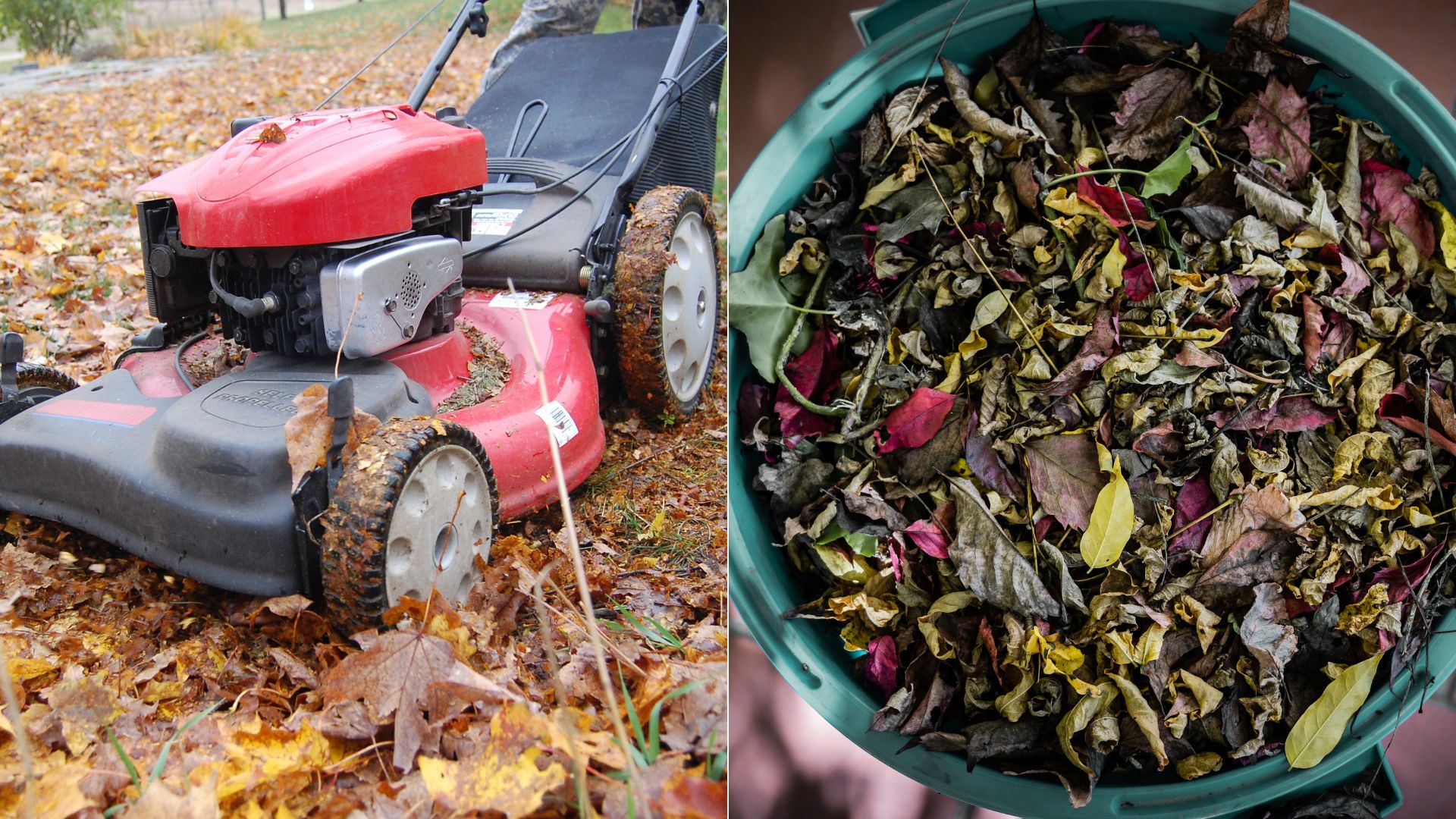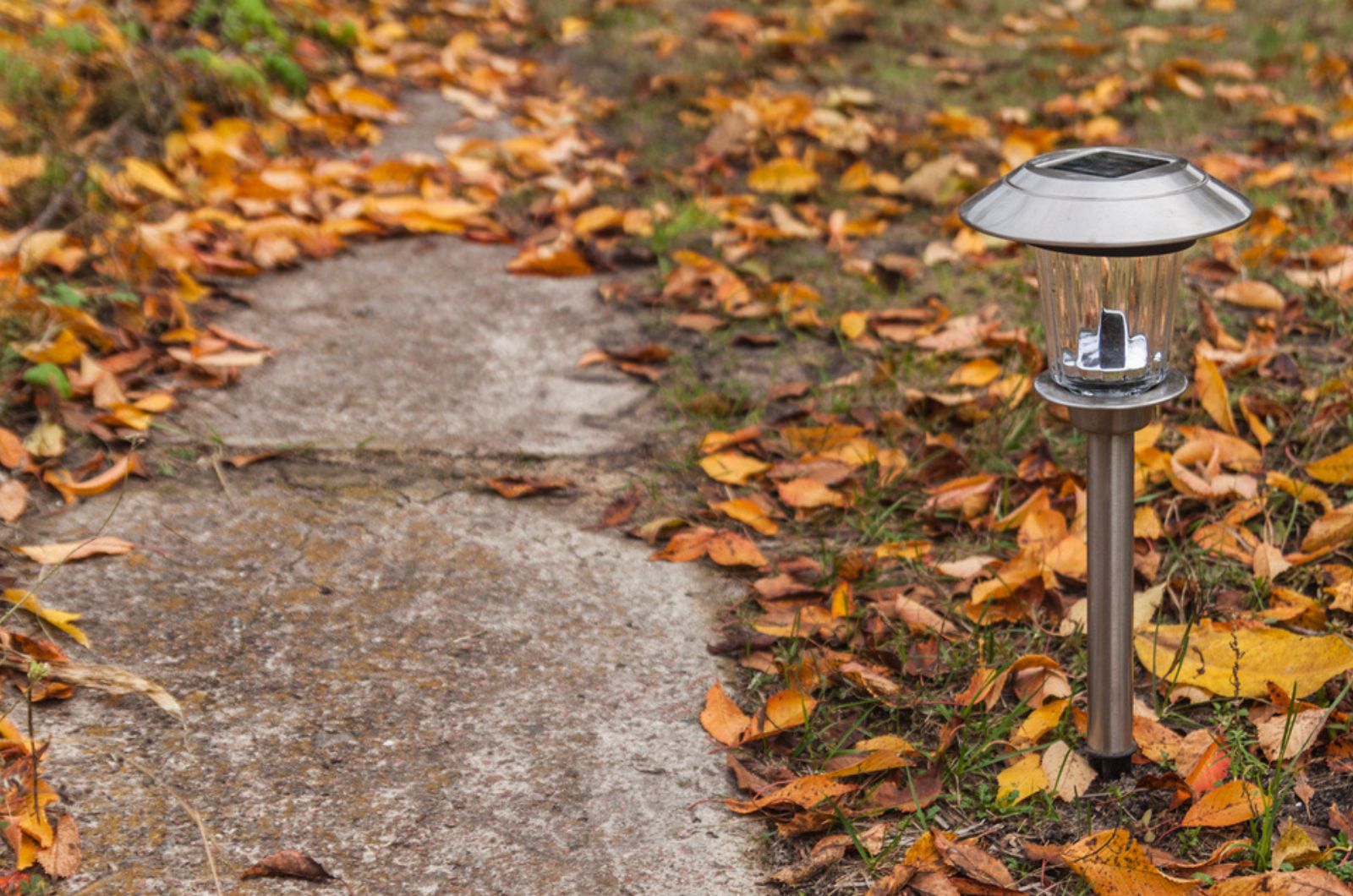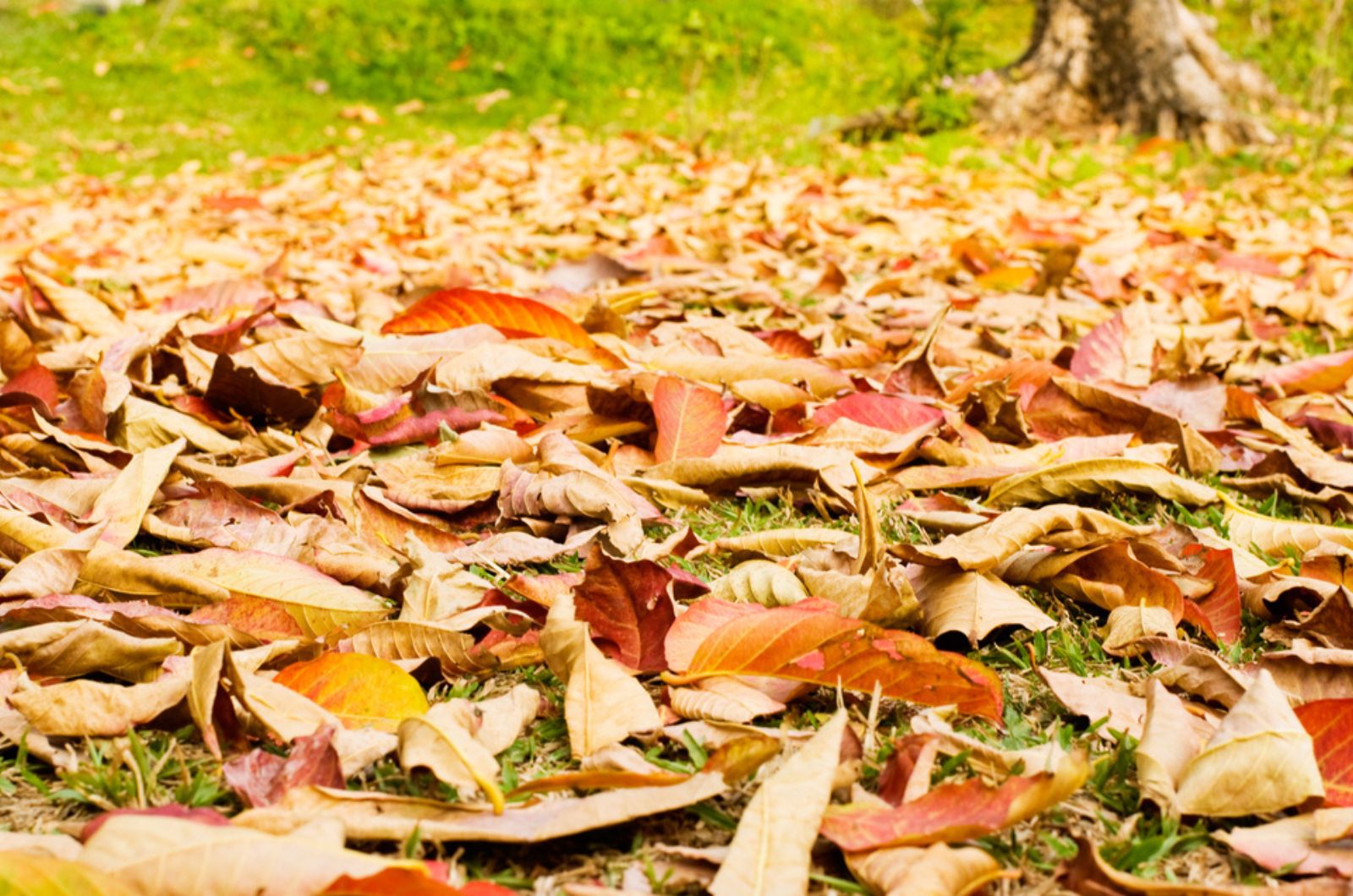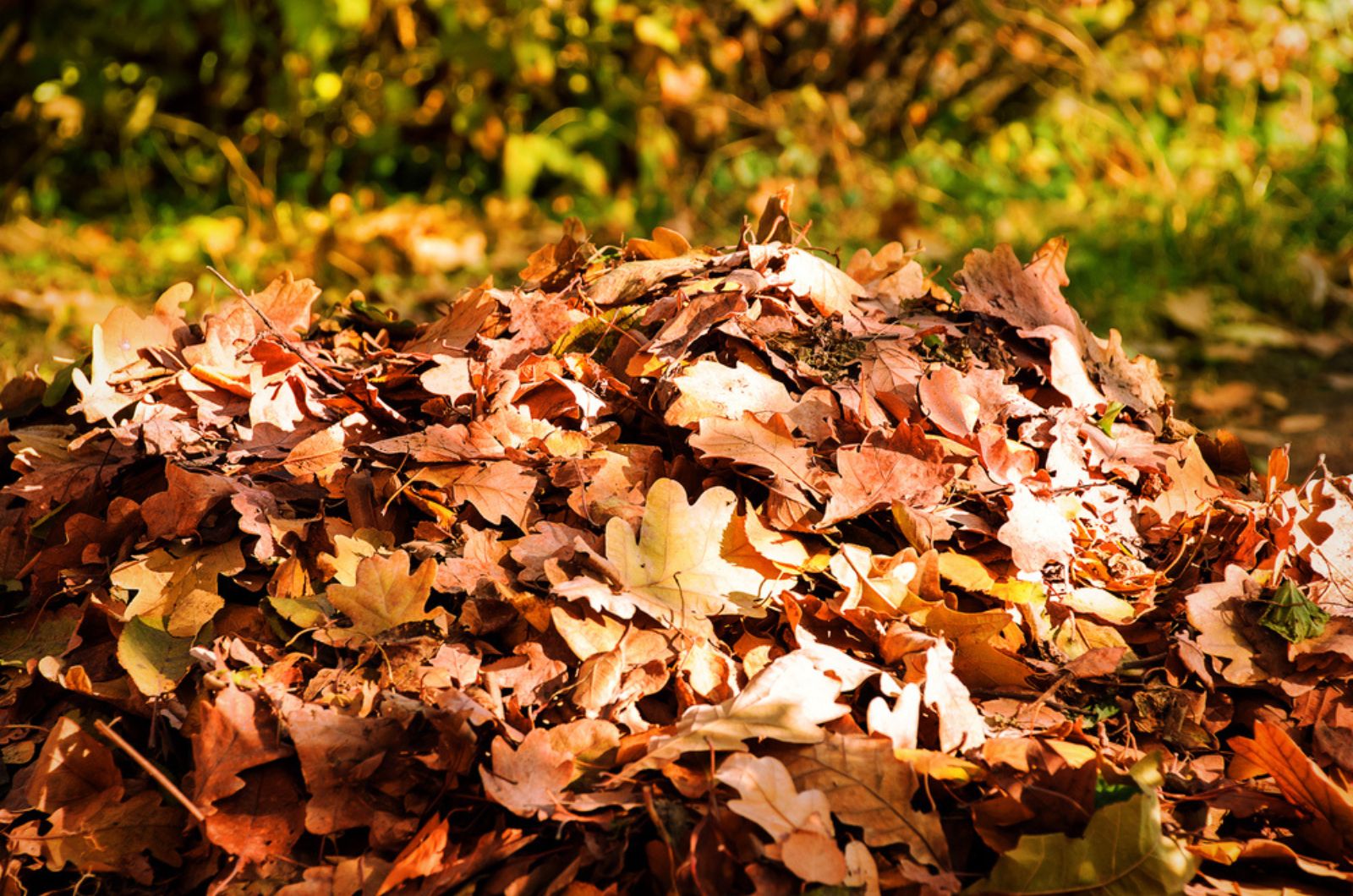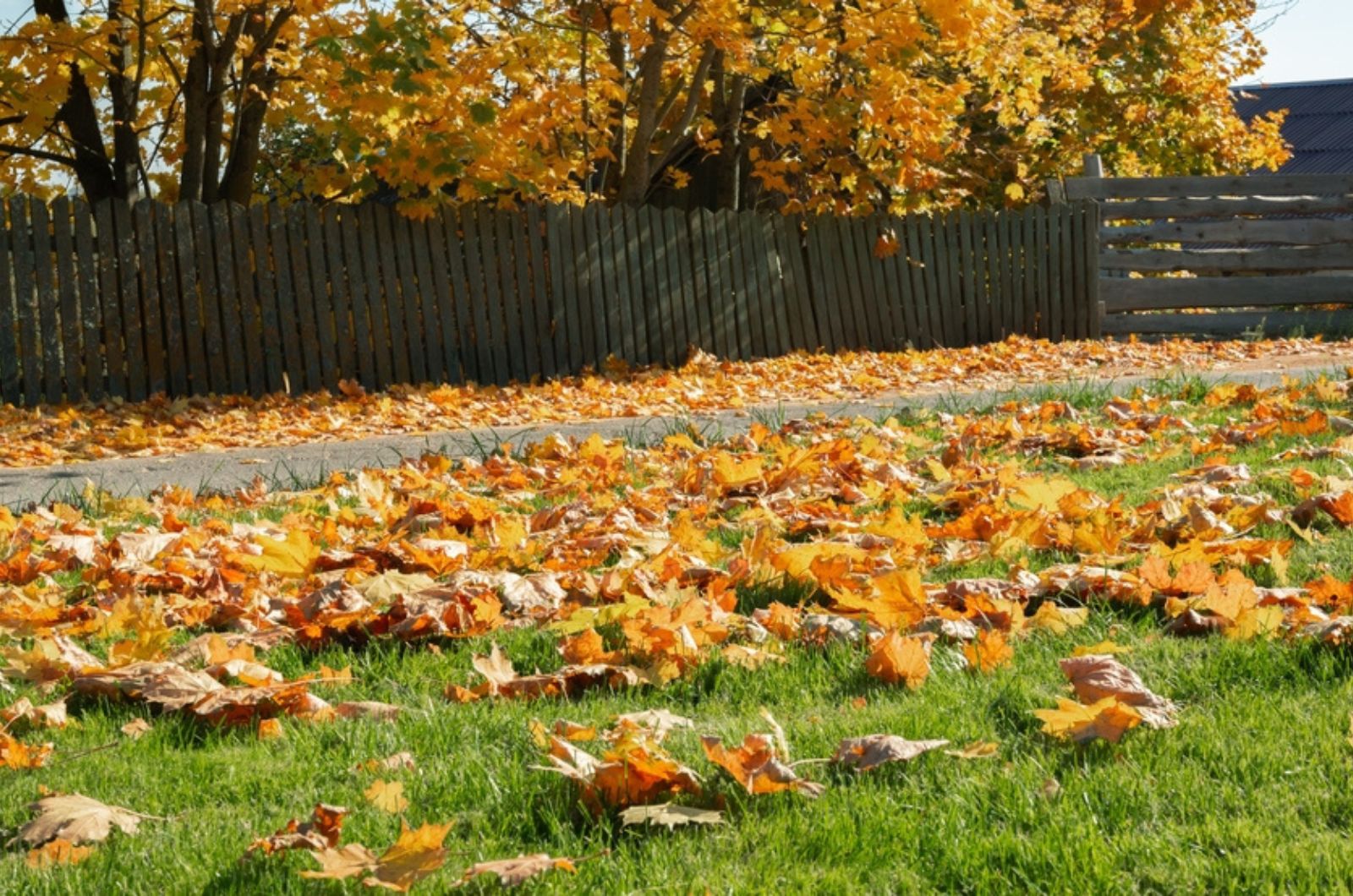I don’t know about you, but I still haven’t got that fall feeling. But when I look outside, I can already see some leaves falling from trees and my neighbors scurrying around collecting them.
However, this fall I’m trying something different. I won’t rake the leaves, or rather I will alter them a bit and leave them in my yard.
Why? Because they can enrich the soil, prevent weeds, sustain wildlife, and more.
These are all the things I’m in favor of – and that’s without mentioning how they can save a couple of bucks.
Here’s everything you need to know about leaving leaves in your garden!
Let’s get started!
They Bring Nutrients Back To The Soil
Leaves are an excellent source of potassium, calcium, and magnesium, and can match (and exceed) even the best of fertilizers out there if you use the same amount of both products. (1)
And the best part about leaves is that they are a part of nature’s cycle. They’re free and you can use them to feed your garden without spending a dime.
Fallen foliage harbors beneficial earthworms and microbes which decompose it and enrich the soil with nutrients. These invertebrates improve soil fertility just by being there, or rather with their constant activity.
We don’t see people fertilizing forests, and yet they grow on their own because the fallen leaves are doing their job.
So, we can do more by doing less and not collecting foliage as it falls.
Improve Soil Structure And Suppress Weeds
Leaves that fall on the ground act like a thick layer of mulch, which blocks the sunlight from getting to the weed seeds and actually hinders their growth. And unlike most vegetable and flower seeds, weeds need light to germinate. (2)
This leaf mulch will moderate soil temperature, insulate the roots, and induce the substrate to retain more moisture, which can be helpful during winter.
And as it decomposes, it will improve soil structure by making sandy and porous soils more water-retentive.
Leaf mulch can also reduce compaction, but it does take a long time to see any real benefits, especially if the soil is really compacted. (3)
Finally, traditional mulch you purchase in your local garden center can be expensive, especially compared to the free leaf mulch you get.
Sustain Wildlife
Fallen foliage can greatly help wildlife, who use it as a nesting and bedding material. Many reptiles, such as salamanders, frogs, and toads, hibernate beneath the leaves.
They also provide shelter and a food source for slugs. I know, we hate these nuisances in our garden for the havoc they wreak around our plants, but they can actually decompose the fallen leaves and help enrich our yard with necessary nutrients.
Foliage also serves as an overwinter home for caterpillars and insect pupae which are an excellent source of food for birds overwinter.
It may not seem like a lot, but leaving leaves unraked in your garden can promote biodiversity, foster native species, and create a healthy ecosystem that won’t need too much of your help to thrive.
Animals will do plenty on their own, and you’ll be able to reap the benefits when the time comes.
How To Leave Leaves In Your Garden
Sure, you can just leave your leaves in the garden without doing anything, but there are much better ways to utilize their powers.
Making leaf mulch is one of them and it’s fairly easy to do. Here’s how!
Mow Them
Running a mower over your fallen leaves might seem counterproductive, making more mess that there needs to be.
However, mowing the leaves will break them into tiny pieces and speed up the decomposition process. This will ensure the nutrients get back to the soil more quickly and start working their magic.
Wait until the leaves are mostly dry before mowing them or using a shredding machine on them.
But know that using too much mulch is a bad idea because it can make your soil overly moist and block the sunlight, causing your lawn to start dying and your plants to start rotting.
If you’re overwintering some of your plants outdoors, you can use 3-6 inches of mulch, but you will have to remove most of it come spring.
The best way is to apply 1-2 inches of mulch in your garden and you’ll keep your plants healthy and thriving.
Layer The Leaves In The Yard
You can use leaves as a special layer in your garden and raised beds if you have way too much or you just don’t want to leave them lying around.
Simply spread them around your garden and raised beds, and around trees or shrubs if you have them.
This mulch will quickly decompose, feed your soil, and prevent weed growth. Don’t forget to shred the leaves before applying them and don’t add more than 1-2 inches at a time.
Replenish The Spent Soil
Leaf mulch might be just the ingredient your soil needs to replenish its lost nutrients and support healthy plant growth.
You can apply leaves as they are or you can compost them on their own. That way, you’ll be able to harvest leaf mold that quickly breaks down and feeds your soil.
Build A Shelter For Wildlife
Building a shelter for various insects and small animals to overwinter in your garden could be a fun activity for your children and family.
Gather some leaves, fallen branches, twigs, sticks, grass clippings, and anything else you find lying in your garden.
Other Ways To Use Leaves
If you’ve planted some of the best trees with fall color, you’ll have to face their eventual leaf loss. However, this habit can help you save a lot of money.
How? You can turn the leaves into nutritious compost and stop buying fertilizers!
Composting
Dry leaves are an excellent source of brown material for your compost pile. Simply toss them in, give your heap a good stir, and add some water if necessary.
This pile will soon become black gold your plants can’t get enough of.
And if you have too many leaves for one compost batch, you can store them in a box in your shed or garage and slowly feed them to your compost over winter.
P.S. They’ll decompose even faster if you shred them first!
Compost Pick-Up
If you don’t have need for your leaves at the moment, aren’t into composting, and don’t know what to do with them, you can always bag them up and leave them for a leaf pick-up service that will take them to the composting facility.
Look into various services and make sure that they will in fact compost the foliage instead of taking them to the landfill.
References:
1. Dillion, D. (2021). Leaf Mulch – Free Soil Amendment for Your Lawn & Garden. NCSU Cooperative Extension.
2. Bolles, B. (2015). How Did Those Weeds Get in My Landscape?. UF IFAS Extension.
3. Jourgholami, M. et al. (2021). Efficiency of Leaf Litter Mulch in the Restoration of Soil Physiochemical Properties and Enzyme Activities in Temporary Skid Roads in Mixed High Forests. CATENA.

